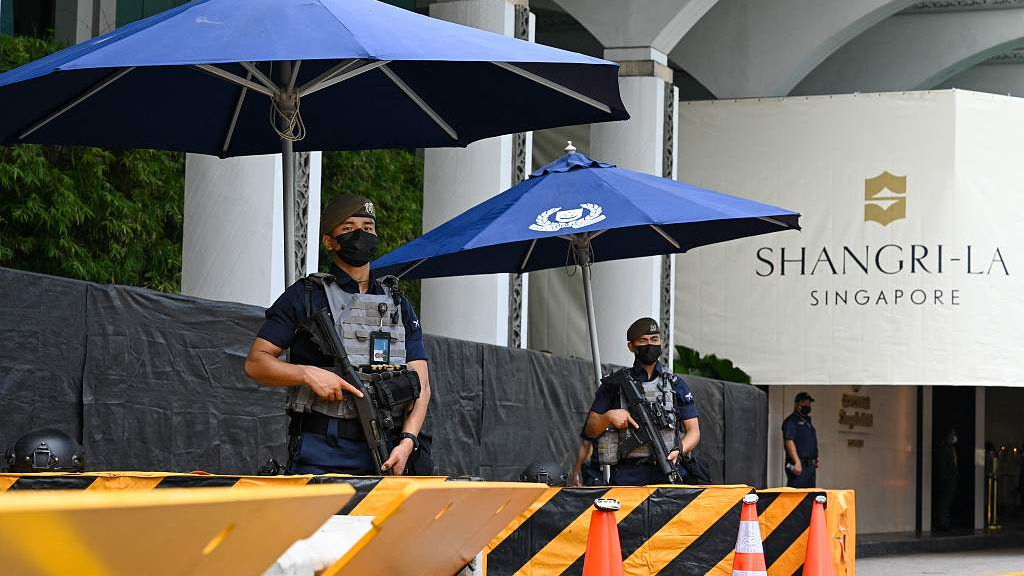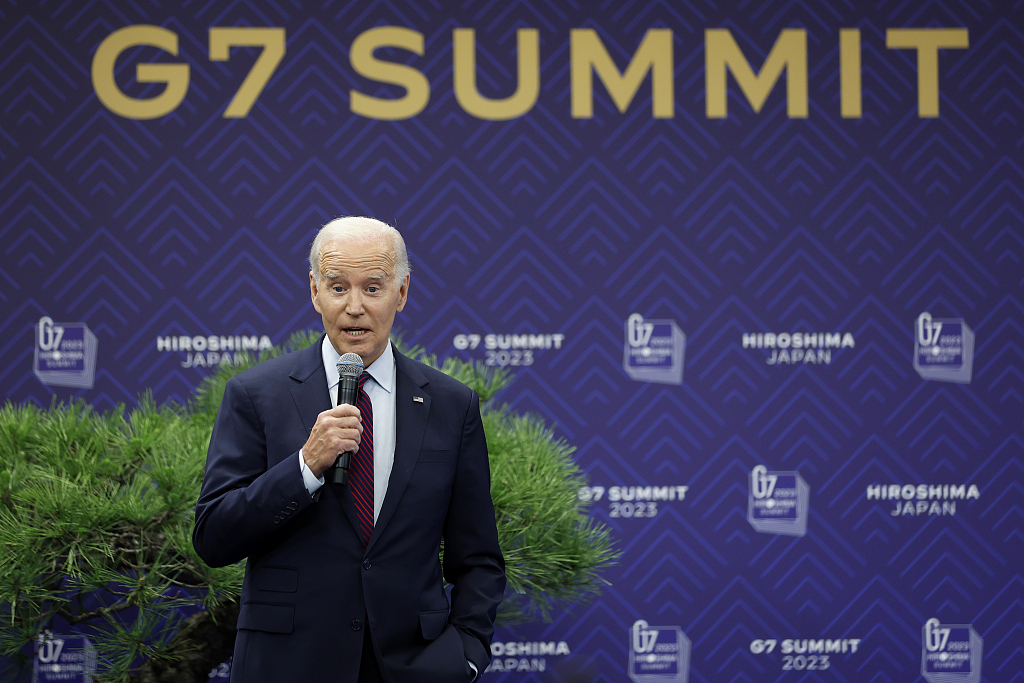
Police stand guard outside the Shangri-La Hotel, the venue of the Shangri-La Dialogue, in Singapore, June 10, 2022. /CFP
Police stand guard outside the Shangri-La Hotel, the venue of the Shangri-La Dialogue, in Singapore, June 10, 2022. /CFP
Editor's note: Kong Qingjiang, a special commentator on current affairs for CGTN, is the dean of the School of International Law at the China University of Political Science and Law. The article reflects the author's opinions, and not necessarily the views of CGTN.
The Shangri-La Dialogue in Singapore is often dubbed as Asia's premier defense summit, where ministers debate the region's security challenges, engage in bilateral talks and come up with fresh approaches together.
Unfortunately, the Dialogue has been misused in recent years by some leading countries in Asia-Pacific as a forum to "lecture on" China. China was naturally hostile to such biased or malicious accusations and therefore occasionally did not dispatch its defense minister.
Nevertheless, the Chinese government has generally insisted on its presence at the Dialogue because the forum is viewed as an opportunity to advance its public diplomacy and to demonstrate China's ability to be more transparent about its defense policy and particularly about its operations in the South China Sea and across the Taiwan Straits.
Indeed, as quite a few pundits have observed, China is traditionally not a country to pose military threat to any other country. China's military construction has been steadily to safeguard its sovereignty and territorial integrity, a fundamental right enshrined in the Charter of the United Nations.
It is understandable that certain neighboring countries might feel the need for China to make its military modernization a more transparent process. To achieve this goal, China has regularly released white papers and subscribed to the Shangri-La Dialogue. As the Dialogue aims to facilitate high-level talks, no country should undermine the atmosphere for meaningful dialogue among the countries.
Unfortunately, the United States seems to have gone astray from this notion. It imposed sanctions on Chinese State Councilor and Defense Minister Li Shangfu for alleged weaponry dealing with Russia. He was placed on the Specially Designated Nationals (SDN) list by the U.S. Department of Treasury. Li Shangfu has made it clear that any meeting between him and his U.S. counterpart during the Shangri-La Dialogue would only follow his removal from the SDN list, which on the U.S. side would not only serve as the correct protocol for the requested persons to meet, but a test of President Joe Biden's remarks at the G7 Summit 2023 – not to "decouple from China" but to "de-risk" from it.

U.S. President Joe Biden speaks during a news conference following the G7 Summit in Hiroshima, Japan, May 21, 2023. /CFP
U.S. President Joe Biden speaks during a news conference following the G7 Summit in Hiroshima, Japan, May 21, 2023. /CFP
At a time when the tensions between the United States and China seem to have been somewhat reduced, evidenced by Biden's softening tone, it is not a phantom alarm that a right atmosphere is needed for the Shangri-La Dialogue 2023, scheduled on June 2-4.
The Dialogue also aims to help come up with fresh approaches worked out together. The regional tensions loom large as a liaison office of NATO is about to be set up in Tokyo. In this context, the role of the regional security organization vis-a-vis the UN Charter needs to be revisited at this forum.
It is not difficult to find that Chapter III of the UN Charter has provided the constitutional basis for the involvement of regional organizations in the maintenance of international peace and security, for which the UN Security Council is primarily responsible. Article 53 of the UN Charter allows such arrangements to take enforcement action, but only with explicit authorization by the Security Council.
Even though NATO does not confine itself to the Northern Atlantic area, it is by its very nature a regional organization and its role should only be played with the explicit or implicit authorization of the Security Council. Without such authorization, NATO's intended presence and its creeping role in Asia' security is doubtful in light of the UN Charter.
In contrast, not only is China making relentless efforts to contribute to mutual trust militarily, but it has come up with its Global Security Initiative (GSI), which is in line with the UN Charter. The essence of the GSI is to eliminate the root causes of international conflicts, and encourage joint efforts to bring more stability to a volatile era.
It is reasonable that during the Dialogue, China will be happy to discuss with other countries the GSI concept as a new approach to further common security in Asia and even across the globe, even though it might take time for other countries involved in the Dialogue to realize the true implications of the GSI.
(If you want to contribute and have specific expertise, please contact us at opinions@cgtn.com. Follow @thouse_opinions on Twitter to discover the latest commentaries in the CGTN Opinion Section.)